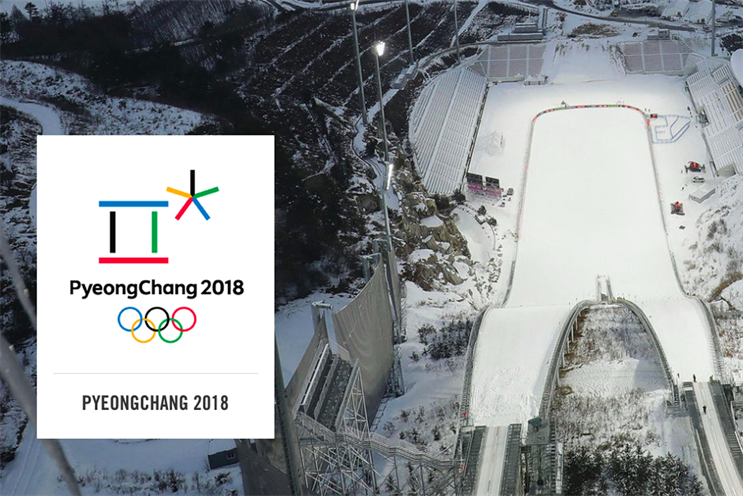In the battle of ideas, South Korea is truly the global-innovation gold medallist. Proof of this can be attributed to the recently published Bloomberg Innovation index which cites the Olympic host nation as the most innovative in the world. Already providing one of the world’s fastest internet speeds and smartphone penetration rates, South Korea is the tech hub of Northeast Asia.
I have to admit as an eternal optimist (sometimes annoyingly so) I am utterly seduced by the values of the Olympic ethos. The heroism, the overcoming of adversity - it’s got it all. The geek in me has also lapped up everything that this tech-driven nation has to offer. Above all else, though, the chance to work with the International Olympic Committee and see the Olympics first hand has been a career PB.
An inspiring element of any Olympics is watching how a country presents itself and embraces the Olympic philosophy. Central to this philosophy is culture and creativity. The ideal of Pierre de Coubertin, founder of the modern Games, is for "the arts and letters, in harmonious combination with sport, shall ensure the greatness of the Olympic Games".
The Games have (sadly) moved on from a time when art, poetry, architecture, graphic design and even town planning were medal-winning events. But creativity ran deep through this Games and it was definitely future-facing.
Much of the country’s economic success is due to its chaebols or conglomerates. Mega groups like Hyundai, LG and Samsung play a pivotal role in shaping the country as a leading powerhouse in automotive, consumer electronics and other tech sectors. This expertise was clearly on show in the mass of art and entertainment spaces and showcase pavilions across the Olympic parks.
However, alongside the established corporate community is a rapidly developing start-up economy. There’s a feeling of youthful determination in the country and much has changed economically, politically and culturally in the 30 years since Seoul hosted the Summer Olympics.
Motivated by an enthusiastic ambition to change the world and shifting from conservative norms, entrepreneurs are rapidly building a new creative economy. Like the fabled Korean Hwarang warriors, these entrepreneurs hold a vision to create a better world.
This resolve is why Korean cultural influence, in the form of services, film and music, is beginning to dominate Asia. So, what can we learn from South Korea, and what may get Great Britain climbing the innovation medals table?
Collaborative creativity
Collaboration is key and was evident across the whole Games experience, both with government and industry partnerships. This collaborative creativity led to PyeongChang being the first zero-emission Games.
It has also been a Games that may influence the way we pay. The first cardless Olympics was supported by Korea’s Lotte Card and Visa, which offered near field communication enabled gloves, commemorative stickers and Olympic pins all loaded with credits. Over 100,000 wearable payment devices were sold over the two-week period.
Risk taking is supported and tolerated. This is somewhat different to the conservative behaviour of other Asian nations. An environment exists where talented individuals are encouraged to embark on innovative adventures and, if they fail, businesses are urged to rehire them.
There’s also an openness and willingness to learn from outsiders. A high proportion of students at top South Korean universities look for training in the US or other countries. Students are well travelled and foreign-trained talent is much sought-after.
Finally, education plays a significant role. The country has achieved an incredibly high literacy rate which has contributed to rapid growth seen over the last three decades. But it has also injected a burst of entrepreneurial energy to the education system.
Creative thinking and prudent risk-taking are nurtured through education and experience. Schools at all levels are an ideal place for young people to explore their entrepreneurial potential and encouraged to explore their own ideas.
These learnings echo the fundamental principles laid down in the Olympic Charter: "Olympism is a philosophy of life, exalting and combining in a balanced whole the qualities of body, will and mind."
This charter truly came to life across two weeks when Korea showed to the world its cultural and technological dexterity. Here’s to Tokyo 2020 and Beijing 2022 - more opportunities to geek out and be seduced by the beauty of art, creativity and technology as well as sporting brilliance.


